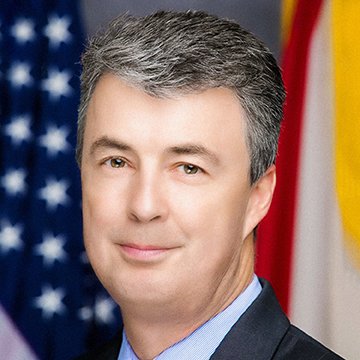Special to the Opelika Observer
Attorney Gen. Steve Marshall filed a brief with the Alabama Supreme Court last week, responding to former House Speaker Mike Hubbard’s appeal of his 11 felony ethics convictions. Marshall argued the legal questions in this case are straightforward, and the evidence is plainly sufficient to support each of Mike Hubbard’s 11 convictions.
“Alabama’s Ethics Law helps prohibit conflicts of interest and promote Alabamians’ confidence in the integrity of their government,” Marshall said. “As we explained in our brief, Mike Hubbard repeatedly violated those laws, and his convictions should be affirmed.”
The state’s brief takes no issue with Hubbard’s contention that, in 2010, he helped enact “aggressive but sorely needed” ethics reforms. And the state agrees with Hubbard that the result was an ethics law that was “among the toughest in the nation.” The state also agrees with Hubbard’s statement that the Alabama Supreme Court “must apply” that law “as the Legislature wrote it,” not as Hubbard now wishes he had.
But the state’s brief disagrees with Hubbard’s “unnatural” reading of the ethics law, which asks the Supreme Court to write broad new exceptions into the law that the Legislature never put there. The brief also disputes Hubbard’s contention that Alabama’s “strongest-in-the-nation” ethics law allows legislators to receive hundreds of thousands of dollars for part-time “work” from people and businesses who are paying the legislators precisely because of their public office.
The state’s brief also takes on Hubbard’s assertion that there was “no evidence” he was using his public office for private gain. The brief recounts how, shortly after receiving his 10th $10,000 check from a “client,” Hubbard told his chief of staff that “he had 100,000 reasons” to use his time and office for that client. The brief also notes how, after Hubbard delivered a legislative victory for another client, the client proclaimed him its greatest legislative “champion.” And the state quotes extensively from Hubbard’s emails, including one in which he stated that the business community owed him for all the “sacrifices [he] made personally and professionally to finally get Alabama a pro-business legislature,” and found it “amazing, and quite disappointing,” that despite his “sacrifices,” he was not capitalizing as handsomely on his office as he had hoped.
Finally, the state’s brief sums up the case, “Hubbard asserts that he was just trying to ‘make a living as other citizens do.’ But private citizens cannot earn a living through jobs that involve minimal work and training over scotch. They cannot collect hundreds of thousands of dollars for occasionally calling a legislator. They cannot email lobbyists and expect riches. In short, private citizens cannot use a ‘public office … for private gain.’ Ala. Code §36-25-2(a)(3). And under the Ethics Law, Hubbard could not either. Hubbard broke the law and betrayed the public trust. His convictions should be affirmed.”
Hubbard will now be given 14 days to file a reply brief, and the Alabama Supreme Court will determine whether to schedule oral argument or decide the case based solely on the briefs.


